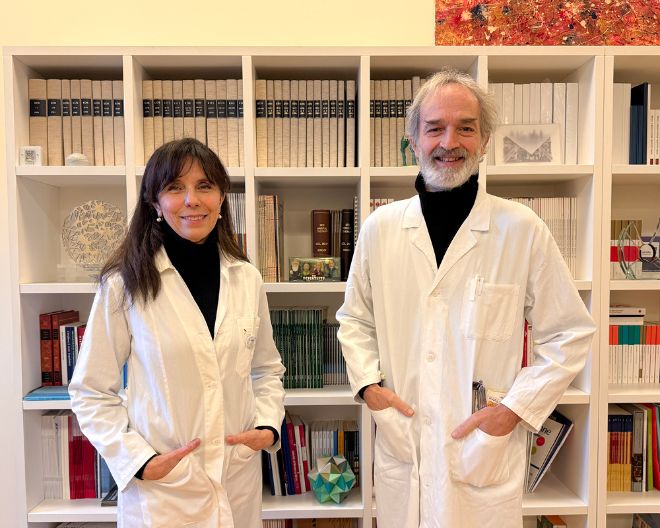A new drug for ulcerative colitis: the results of the study coordinated by Prof. Danese

A multicenter study demonstrates efficacy and tolerability of a new therapy in patients with moderate to severe ulcerative colitis
Ulcerative colitis is a chronic inflammatory bowel disease that affects about 130,000 people in Italy. Disease management is complex and the therapies available today are effective only in a subset of patients, whose quality of life is often significantly compromised.
However, there is good news from the world of research: under the coordination of IRCCS Ospedale San Raffaele, an international consortium has tested the efficacy and safety of a new oral drug for patients with moderate to severe active ulcerative colitis. It is called upadacitinib and according to the results of the recently concluded clinical study – a multicentre phase 3 trial – it is able to reduce the intestinal inflammation characterizing the disease, thanks to the inhibition of various biological processes involved in the inflammatory cascade.
The study, published today in the prestigious journal The Lancet, was conducted in 199 institutes around the world and was coordinated by Silvio Danese, full professor of gastroenterology at Vita-Salute San Raffaele University and head of Gastroenterology and Digestive Endoscopy at IRCCS Ospedale San Raffaele in Milan.
Based on these results, the Committee for Medicinal Products for Human Use (CHMP) of the European Medicines Agency (EMA) has released its positive opinion about the use of upadacitinib for the treatment of ulcerative colitis. The final decision by the European Commission is expected in the third quarter of 2022.
What is upadacitinib and how it works
Upadacitinib is an oral drug already used for the treatment of certain diseases, such as rheumatoid arthritis, psoriatic arthritis, ankylosing spondylitis and atopic dermatitis. In particular, its task is to block specific pro-inflammatory cytokines involved in the intestinal inflammation process and highly present in the tissues of patients with ulcerative colitis.
Unlike other molecules, upadacitinib is able to inhibit several cytokines at the same time and thus to better control different pathways of inflammation. That's why the researchers thought that its use could also be effective in patients with ulcerative colitis.
The upadacitinib study coordinated by San Raffaele
The study - multicentre, randomized, double-blind and placebo-controlled - consisted of three "sub-studies" with different aims: two induction studies, in which the effect of upadacitinib was evaluated compared to placebo in the initial phase of the treatment - when we need to turn off the ongoing inflammation - and a maintenance study, to observe the effects in the medium to long term.
The clinical trial was conducted in Europe, North and South America, Australia, Africa and some Asian regions. The enrolled patients were aged between 16 and 75 years, have been suffering from moderate to severe ulcerative colitis for at least 90 days and had inadequate responses to conventional therapies or medical contraindications to undergo such treatments. Explains Prof. Silvio Danese:
During the induction studies, we treated nearly 1000 patients with 45 mg of upadacitinib or placebo once a day for 8 weeks, with excellent clinical, endoscopic and histological efficacy results. Those who showed good clinical remission from the drug - 451 patients in all - were randomly re-assigned to upadacitinib at different doses or to placebo for the maintenance phase of the study, which lasted another 52 weeks.
The results show that the new drug is safe, effective and well tolerated both in the short and medium to long term, making it an excellent therapeutic option for patients suffering from ulcerative colitis even compared to other drugs already on the market.
Although upadacitinib is still under approval by the European authorities for moderate to severe ulcerative colitis, EMA's Committee for Medicinal Products for Human Use has already released its positive opinion and we hope that the results of our study may soon give new hope to patients suffering from this pathology. The new drug, in fact, was generally well tolerated and its action proved to be very quick: a statistically significant number of patients obtained a positive clinical response, compared to placebo, already in the second week of treatment.
You might be interested in

Multiple sclerosis, breakthrough in research: researchers have identified a molecule that promotes repair of the nervous system

The microbiome as an ally against myeloma

Intrecci: a UniSR project for more inclusive and accessible cancer diagnosis

